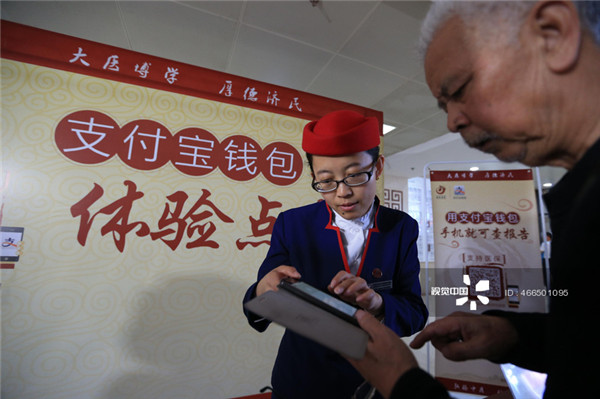In quest of the next big capital injection
 |
|
An employee explains the Alipay mobile medical service platform to a senior citizen. [Photo provided to China Daily] |
The agency expects the Chinese mobile medical market to surge to 4.27 billion yuan this year, while the user numbers may reach 138 million, a 44.7 percent rise from a year earlier. Venture capital investment, a measure of the sector profitability, in domestic Web-based medical services was about $800 million in the first six months of the year.
According to industry experts, though there has been a growing entrepreneurial interest in Web-based mobile medical services, many of the start-ups are facing a capital crunch.
"Capital has mostly been flowing to some mid-to-late stage Web-based medical companies," said Liu Jiehao, an analyst from iiMedia Research.
Experts said the capital flow problems can be directly linked to the existing regulations which allow Web-based medical service providers to offer only consultation services and not treatment.
Song Shuli, the spokeswoman for the National Health and Family Planning Commission said the restrictions are based on the Internet medical services rules issued in 2009. She admitted that it was necessary for the authorities to tweak the rules as when there are significant technology advances.
According to iiMedia Research, the diversified fields of the mobile medical industry, including online consultations and visit services, online sales of medicines and online registrations, have developed rapidly. Services like the doctor-patient social platform, medicine e-commerce and intelligent wearable medical equipment are on the cusp of a boom, according to the research firm.
Li Tiantian, the founder of DXY, an online platform gathering medical, pharmaceutical and life science professionals, said due to various reasons the government has not given Web-based medical services top priority. As aa result, even doctors are apprehensive while registering on these portals, he said.
Li believes that Web-based medical services can only play an auxiliary role in diagnosis and treatment and patients should still go to the hospital for treatment.
















